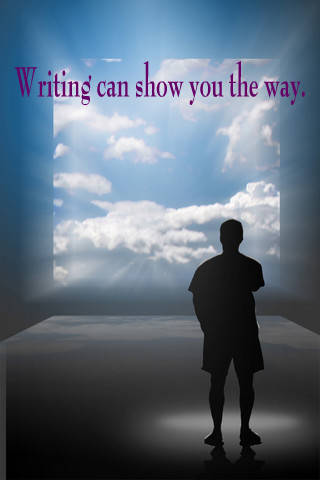 Not long ago, I had a rejection that hurt a lot. Every writer knows the feeling.
Not long ago, I had a rejection that hurt a lot. Every writer knows the feeling.
This particular rejection, for various reasons, was especially painful, and it threw me for awhile. I found myself obsessing over it. I woke up at night and thought about how awful it felt to be rejected. I sat down to write and immediately started thinking about how this work could be rejected, too—even anticipating how bad that would feel. When someone asked me how I was doing, I’d begin with, “Not great. You see, this work was rejected…” and I’d soon be drowning in self-pity.
I wasn’t feeling awful 100% of the time, however. When I was in the middle of working on my current novel, I was too busy writing to think about my pain. When I was reading a good book or watching an interesting movie, playing chess with my husband, or playing the viola da gamba (I’m an amateur musician in my spare time), I wasn’t feeling bad at all.
Sign up now for my free weekly strategies for writers.
In fact, the only times I hurt was when I was thinking about hurting. It was almost as if I would go: Wait a minute. I’m supposed to be in pain here. For a while there, I forgot to be miserable!
In Everyday Zen, Charlotte Joko Beck writes about a friend who’d had surgery. “My friend noticed that when there was just the physical pain, there was no problem,” Beck writes. “The minute she began to have thoughts about the pain, she began to suffer.”
Beck uses the phrase “false suffering,” for the pain we experience when we start thinking about our pain—when we begin repeating stories in our heads about how much it hurts.
This is exactly what I was doing. I wasn’t just hurting from the rejection, I was hurting from what I was thinking about the rejection. This is so awful. How could it happen? Everyone told me this work was going to get “snapped up,” so why didn’t it? So-and-so’s work got accepted. Why not mine? It was this narrative, more than the rejection itself, that was making me miserable.
I don’t mean that rejection doesn’t hurt. It does. And it’s all right to feel bad about it. But it’s also a good idea to step back when we’re hurting and take a good look at the pain. To ask ourselves how much of our suffering is coming from the disappointment itself and how much from what we’re telling ourselves about it.
Here are some of the things that work for me when I’m experiencing false suffering: Simple techniques that help me separate false suffering from the real sting. Try them the next time an especially painful rejection is getting you down.
Stop talking to yourself about the pain.
I’m a terrible self-talker. I have long, elaborate conversations with myself—often out loud—which I suppose is a bit crazy in and of itself, but truly becomes crazy when I’m talking myself into feeling bad.
If you are repeating stories to yourself about how hard you’ve worked, how crappy your writing is, how you’re never going to be as successful as you would like, shut yourself up. Either change the narrative or stop the chatter altogether.
Stop comparing yourself to other writers.
I’ve written about this before, and so has Leo Babauta, so I won’t say much more here, except this: You’re not someone else. You’re you. Just be you. There’s only one person who can be you, so if you don’t do it, who will?
Focus on your current work.
Okay, so the last story got turned down 67 times. The past is passed. What are you working on now? Turn your sights away from what didn’t go right last time and home in on what you’re doing in the present. This is another way of saying, “be in the moment.”
Reinterpret your pain.
When we’re engulfed in false suffering, we tend to think there’s a reality set in stone outside our own minds. But reality is largely what we make it out to be. In my coaching practice, I often tell people who are suffering to transform their image of themselves as victims who’ve been hurt to one of heroes who’ve survived. The transformation does wonders.
Here are some basic ways to reinterpret the pain of rejection:
Instead of, I’m a failure, say I’m a work in progress.
Instead of, My writing sucks, say My writing gets better every time I write.
Instead of, I’ll never be successful, say I’ll keep writing and what will come will come.
Instead of, This is just so unfair to me, say, Life is unfair to everyone in one way or another.
What is your experience with false suffering? Does the notion of false suffering ring true to you? Comment here and let us know how you’ve experienced it, and what you’ve done about it.
Jill – I love this post! You know my past and present false suffering. I’m a magnet for rejections. Job rejections, publication rejections, grant rejections, writer residency rejections. Wallow, wallow… Maybe the antidote to such suffering is resilience. Some people are more resilient than others. A sense of humor also helps. Wallow, wallow…
Thank you, Karen. You know my history as well! I need to put this notion of “false suffering” into play or else go crazy. (And yes, a sense of humor–gallows humor, perhaps) is absolutely necessary!